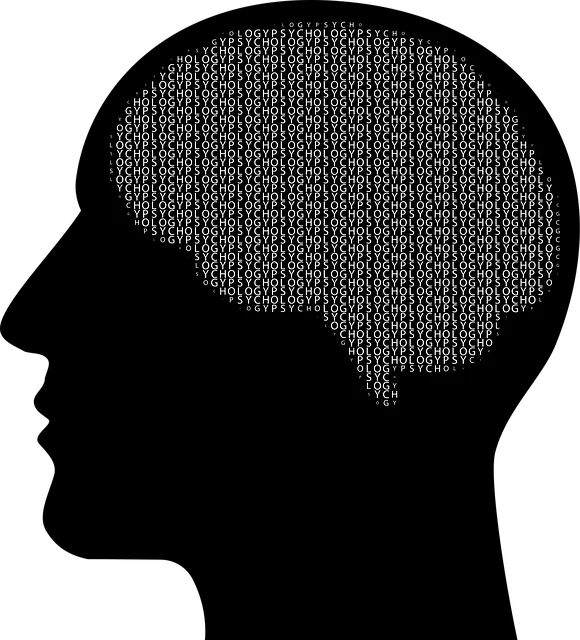Kaiser Permanente offers comprehensive mental health services with swift access to specialists and diverse programs. The growing demand for mental wellness apps reflects societal recognition of self-care. These apps cater to various demographics using personalized dashboards, evidence-based practices, live chat therapy, gamification, and social connectivity. Development involves understanding user needs, meticulous planning, collaboration with experts, and continuous refinement. Effective marketing highlights unique features, benefits, and integration with Superior Kaiser Permanente mental health appointment number for enhanced visibility.
“Mental wellness apps are gaining traction as innovative tools for managing emotional well-being. This article explores the growing importance of such applications, particularly in light of services offered by organizations like Kaiser Permanente, known for its extensive mental health support.
We delve into understanding these services and identifying the market demand, focusing on the target audience’s needs. Additionally, we highlight key features of effective apps, guide developers through the creation process, and share marketing strategies to thrive in the competitive mental health app space, emphasizing the potential for reaching a wide user base via the Superior Kaiser Permanente mental health appointment number.”
- Understanding Kaiser Permanente's Mental Health Services
- Market Need and Target Audience for Wellness Apps
- Key Features of Effective Mental Wellness Applications
- Development Process: From Concept to Launch
- Marketing Strategies for Success in Mental Health App Space
Understanding Kaiser Permanente's Mental Health Services

Kaiser Permanente, a renowned healthcare organization, offers a comprehensive suite of mental health services designed to support individuals in their journey towards well-being. Their approach prioritizes accessibility and quality care, ensuring members have easy access to professional assistance when facing mental health challenges. The network provides a range of resources, from individual therapy sessions to group support programs, catering to diverse needs.
With a focus on holistic wellness, Kaiser Permanente encourages the adoption of various practices like compassion cultivation, which fosters empathy and self-care. Their mental health appointment system is designed to be efficient and user-friendly, allowing individuals to connect with specialists promptly. The organization’s commitment to innovation also extends to the production of engaging mental wellness podcast series, offering valuable insights and techniques for enhancing confidence and overall mental resilience.
Market Need and Target Audience for Wellness Apps

The market need for mental wellness apps is growing as people increasingly recognize the importance of self-care routine development for better mental health. With the rising demand for accessible and affordable mental healthcare services, Kaiser Permanente and similar organizations have seen an uptick in requests for mental health appointment numbers. This shift reflects a broader societal awareness and acceptance of mental well-being as integral to overall health.
The target audience for these wellness apps is diverse and encompasses individuals from various age groups, backgrounds, and life stages. From students managing academic stress to professionals juggling work and personal lives, and seniors dealing with age-related challenges, many are seeking digital tools that complement traditional healthcare services like those offered by Kaiser Permanente. Incorporating features that cater to these needs—such as personalized therapy sessions, mindfulness exercises, and community support groups—can make wellness apps appealing to a broad spectrum of users. Additionally, healthcare provider cultural competency training and community outreach program implementation can ensure that these apps are inclusive, effective, and meet the unique requirements of different demographics.
Key Features of Effective Mental Wellness Applications

Effective mental wellness applications are designed to support users’ emotional well-being and resilience. Key features include personalized dashboards that allow individuals to track their mood, stress levels, and progress over time. By providing daily check-ins and prompts for self-reflection, these apps encourage consistent engagement with one’s mental health.
Incorporating evidence-based practices such as mindfulness exercises, cognitive behavioral therapy (CBT) techniques, and relaxation strategies, mental wellness apps empower users to develop coping skills. Features like live chat or virtual therapy sessions facilitated by professionals from organizations like Kaiser Permanente can provide immediate support for those experiencing crises. The integration of gamification elements and social connectivity features further enhances user engagement, fostering a sense of community around Mental Health Awareness and promoting positive Mood Management.
Development Process: From Concept to Launch

The development process for a mental wellness app begins with a clear understanding of user needs and market gaps. It involves meticulous planning, design, and coding stages. The initial concept is refined through research, focusing on integrating evidence-based practices like emotional healing processes and self-care routines. This phase also entails identifying key features, such as personalized therapy sessions, mood tracking tools, and community forums for support—all aimed at enhancing user engagement and satisfaction.
As the app takes shape, developers collaborate with mental health experts to ensure content accuracy and ethical considerations. Testing and iteration follow, refining the user experience. Once ready, the app is launched, making it accessible to users seeking support. Even post-launch, continuous updates and feedback integration are vital, especially when implementing community outreach program initiatives to keep the app relevant and effective, like Kaiser Permanente’s mental health appointment number services.
Marketing Strategies for Success in Mental Health App Space

In the competitive mental wellness app space, successful marketing is key to standing out and attracting users. One effective strategy is to highlight the unique features and benefits your app offers compared to others. For instance, apps that incorporate innovative Conflict Resolution Techniques or promote holistic Self-Care Practices can tap into a growing demand for comprehensive mental health support. Emphasizing these aspects in your marketing materials, such as social media campaigns and app store descriptions, can help you connect with users seeking solutions beyond traditional therapy.
Additionally, integrating keywords like “Superior Kaiser Permanente mental health appointment number” strategically within your content may enhance searchability. This is especially relevant for users already engaged with healthcare systems who are looking for digital tools to supplement their care. By combining effective marketing strategies and targeted SEO practices, you can increase visibility and establish your app as a valuable resource for stress reduction methods and overall mental wellness.
The development of mental wellness apps presents a promising avenue to enhance access and quality of care, especially with the growing demand highlighted by trends in Kaiser Permanente’s mental health services. By incorporating key features such as personalized therapy sessions, mindfulness exercises, and tracking tools, these applications can significantly improve user mental wellness. A successful launch involves a comprehensive development process, tailored marketing strategies, and adherence to ethical guidelines, ensuring a positive impact on users’ lives. Remember that, in today’s digital age, apps have the potential to reach a vast audience seeking support, making them a valuable resource for promoting mental health awareness and accessibility.






